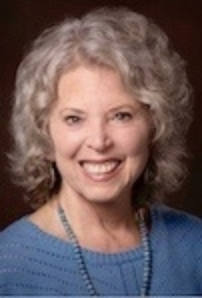 With thanks to Rosa.
With thanks to Rosa.
January 23, 2023
https://www.innerbonding.com/show-article/4926/welcoming-our-disowned-parts.html
Our wounded parts heal with love and truth, not with being disowned. Trying to get rid of your wounded self will keep you stuck in your wounded self.
“I just want to get rid of the part of me that gets angry so easily.”
“I hate the part of me that thinks about food all the time.”
“I just want to kill the part of me that is so needy.”
“I hate the people-pleasing part of me.”
“I wish I could cut out the anxious, wimpy part of me.”
Often, I hear the people I work with wanting to get rid of their wounded self.
This would be like attempting to kill off a child who is having problems. This would, of course, cause the child many more problems.
 Instead, we need to learn to welcome, embrace, love, and explore the many wounded parts of ourselves.
Instead, we need to learn to welcome, embrace, love, and explore the many wounded parts of ourselves.
These parts exist due to the false beliefs that we have from our childhood experiences.
These parts heal when we show up as loving adults, taking loving actions based on truth – not by being hated and disowned.
Embracing my Victim
One day, many years ago when doing my Inner Bonding practice and talking with my spiritual guidance, I asked about my own disowned aspects.
“There is really only one disowned aspect that all the other aspects come from,” she said.
“This aspect is the victim.
“The victim is like the mothership from which all the other wounded aspects emerge.”
“Me? A victim?” I was a trifle miffed. I did not see myself as a victim.
“No one grows up in your society without feeling victimized – by parents, teachers, siblings, peers or religious leaders,” she said.
“Everyone has had many experiences in childhood of being victimized, so how can anyone grow up without feeling like a victim?
“The beliefs regarding being a victim are in your very young inner child.
“Until the beliefs within this wounded child are healed, you are being governed by them, even though you may not be aware of them.
“No one wants to feel like victim, so many of your protections are there to have control over not feeling like a victim.
“The anger, blame, withdrawal, denial, defensiveness, resistance, caretaking, and so on are to have control over not being controlled.
“Addictions are there to not feel the feelings of helplessness, heartbreak, and loneliness that come from being treated unlovingly and feeling victimized.
“Embrace the part of you that feels victimized, and you will find yourself able to embrace all the painful feelings that your controlling behavior is attempting to avoid.
“Who do you know who takes full responsibility for lovingly managing all their feelings and behavior, especially in their relationships when they feel hurt and unloved?”
I had to admit I didn’t know anyone like that. I had never met an enlightened being.
As I learned to embrace my victim aspect, rather than disown or judge this part of my wounded self, so much healing occurred.
Today, I can’t remember the last time I felt like a victim or suffered from the painful feelings that result from disowning any of my wounded aspects.
While it’s not always easy to face this aspect of yourself, it’s so worth it!
Next time you feel anxious, angry, guilty, shamed, critical, resistant, needy, depressed, or hurt, try opening your arms and welcoming this wounded part of you.
Explore the beliefs behind these feelings and you might discover your victim.
Then welcome that part with great love and compassion.
The more you learn to compassionately and tenderly manage the deeper painful feelings of loneliness, heartbreak, and helplessness that underlie your controlling, protective addictive behavior, the less like a victim you will feel.
Certainly, there will always be people who treat you with meanness and ill will, but when you learn to embrace the pain of this with much kindness and compassion toward yourself, you find that you no longer take their behavior personally, and therefore no longer feel like a victim.
Join Dr. Margaret Paul for her 30-Day at-home Course: “Love Yourself: An Inner Bonding Experience to Heal Anxiety, Depression, Shame, Addictions and Relationships.”

